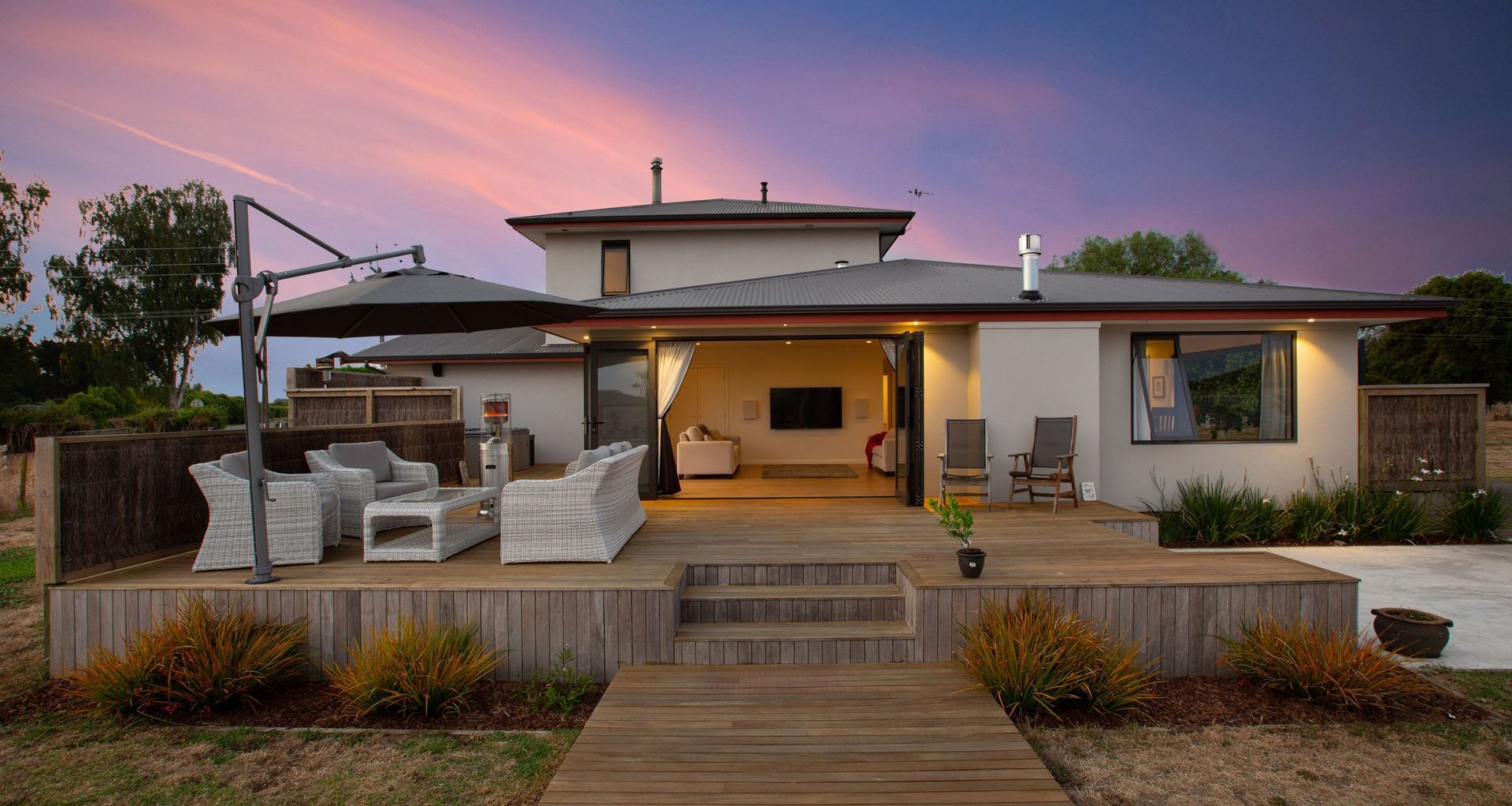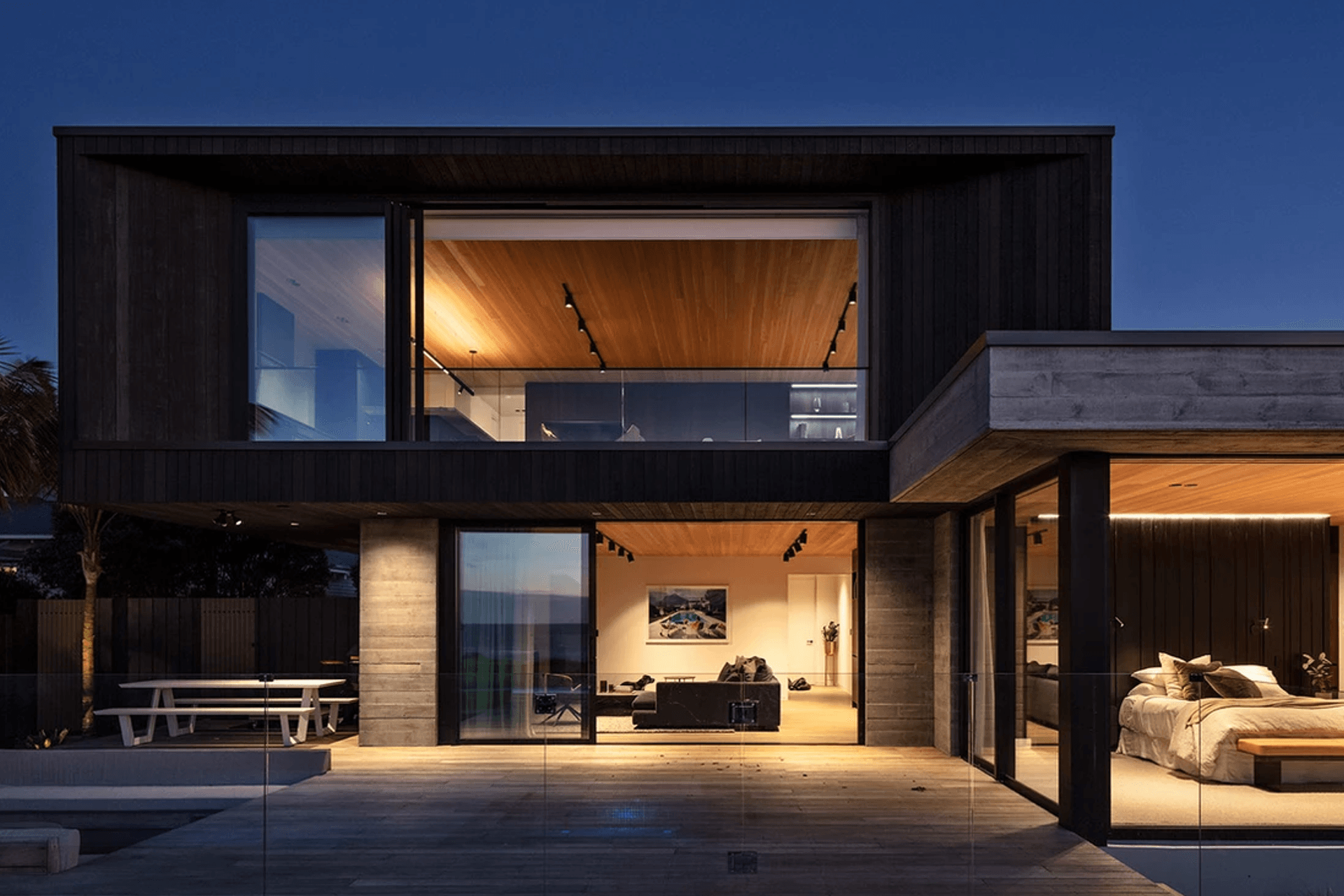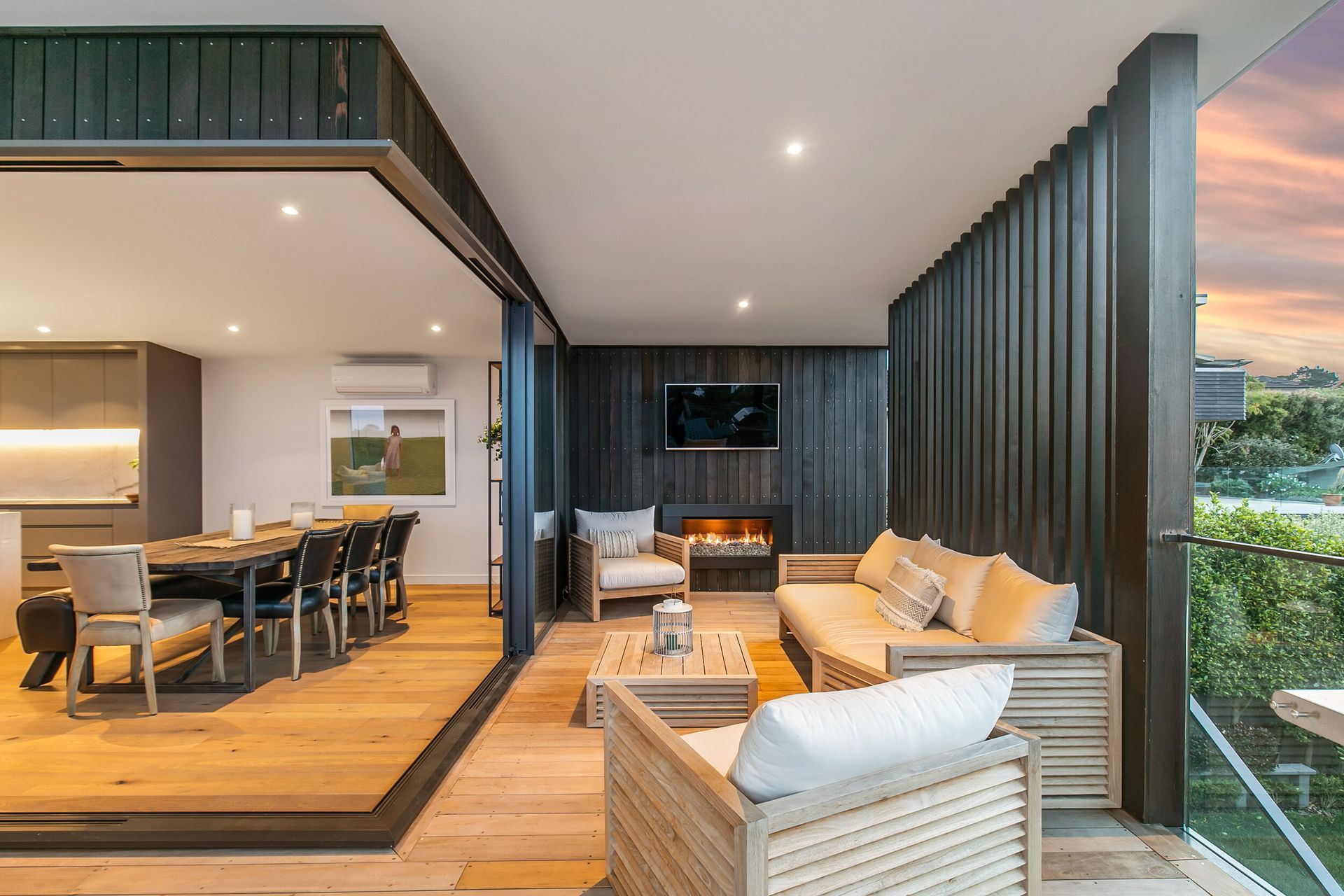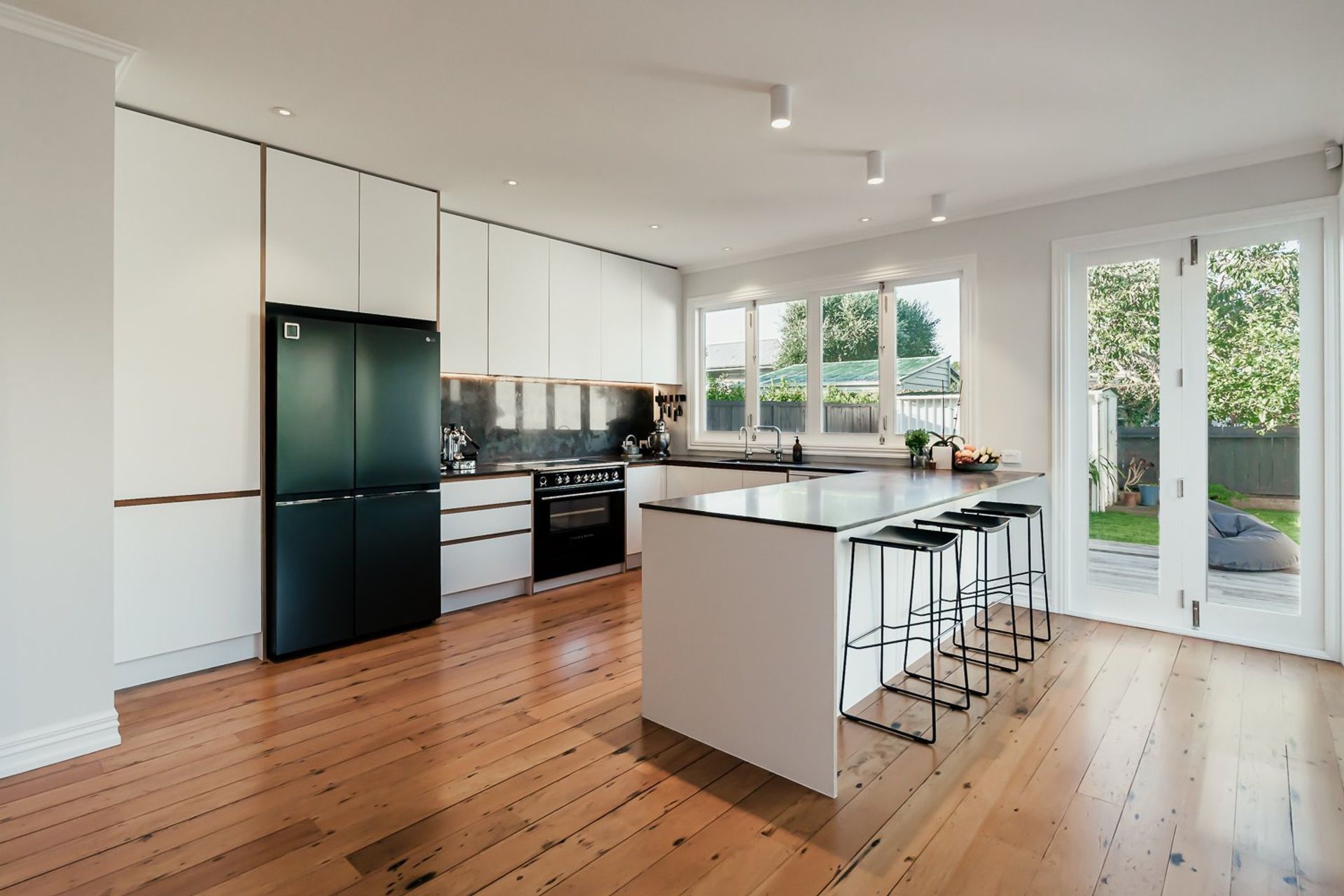Comparing architects and builders: Navigating their roles and when you’ll need them

Both architects and builders offer specialised expertise, guiding the project through different phases, from design to execution. An architect skillfully creates highly functional and visually harmonious spaces tailored to meet each client's unique needs. At the same time, a reliable builder will manage the logistics, materials, and labour to bring the design to life. By selecting the appropriate expert for your specific needs, you can avoid unnecessary setbacks, stay on budget, and ensure that the final result aligns with your vision.


When to hire an architect, builder, or both
It's crucial to hire the right professional to streamline your project. Architects are ideal for projects with significant design, structural changes, or complex planning, like custom homes or major renovations. They create detailed plans that balance aesthetics, functionality, and local regulations.
Builders are responsible for the physical construction and manage subcontractors, materials, and timelines. You may only need a builder for more straightforward projects, such as building a deck and attic conversion.
However, working with both an architect and a builder is often the best approach for more intricate undertakings, ensuring a seamless process from concept through to completion.
Ultimately, the key question to ask yourself is: "Does my project require just a builder, or is an architect's expertise necessary to achieve my goals?".
What does an architect do?
From initial sketches to detailed plans, architects guide the construction process, balancing creativity with practical needs:
- Design and planning: Creates the overall design, including layout, aesthetics, and functionality.
- Blueprints and drawings: Develops detailed architectural plans and technical drawings for the project.
- Zoning and permits: Ensures the project complies with local zoning laws and building regulations.
- Client consultation: Works closely with the client to ensure the design meets their vision and needs.
- Material specifications: Recommends materials for construction, finishes, and other design elements.
- Coordinate with engineers: Works with structural, mechanical, and electrical engineers to ensure feasible designs.
- Regulatory compliance: Ensures that the design meets all safety and environmental regulations.
- Project oversight (design stage): This stage reviews the construction process to ensure it aligns with the design and addresses any necessary adjustments.
What does a builder do?
A builder coordinates the project, from planning and obtaining permits to supervising labour and ensuring the work meets safety and quality standards:
- Construction management: Oversees the day-to-day construction process, ensuring the project is built according to the architectural plans.
- Hiring and managing subcontractors: Coordinates and supervises tradespeople such as electricians, plumbers, and carpenters.
- Material procurement: Sources and orders construction materials needed for the build.
- Scheduling and timeline: Manages the project timeline, ensuring construction stages are completed on schedule.
- Budget management: Tracks labour and material costs to ensure the project stays within the set budget.
- On-site problem solving: Addresses any on-site issues that arise during construction, such as unforeseen structural challenges.
- Compliance with building codes: Ensures the construction adheres to all local building codes and standards.
- Quality control: Monitors workmanship and material quality throughout the build to ensure the project meets the required standards.
- Project completion: Ensures the project is completed to the client’s specifications and manages the final inspections before handover.
Value of hiring both an architect and a builder for your project
Hiring both an architect and a builder for your project offers immense value by combining creative design expertise with practical construction knowledge. An architect brings vision, planning, and a comprehensive understanding of space, ensuring your home or building is not only aesthetically pleasing but also functional and aligned with your needs. They help navigate design complexities, obtain permits, and manage the project's overall cohesion.
Meanwhile, a builder brings hands-on experience, transforming architectural plans into reality. They ensure the project is constructed efficiently, within budget, and in code. The collaboration between an architect and a builder allows for seamless communication and fewer project delays or misunderstandings. This holistic approach often results in a more personalised, well-executed build that maximises the value of your investment in both time and cost. In summary, hiring both an architect and a builder results in the following:
- A combination of design expertise with construction knowledge
- Access to a broader network of trusted suppliers and subcontractors
- Accurate price management that minimises unexpected costs
- Better communication and faster turnaround times
- Personalised, high-quality build that maximises value

Projects that only require a builder
Specific projects may not need the involvement of an architect and can be completed solely by a builder. These are typically straightforward construction or renovation tasks that don't involve complex design elements such as:
- Building a deck or patio
- Installing new windows or doors
- Adding a carport or garage
- Renovating a kitchen or bathroom without structural changes
- Installing fences or garden sheds
- Replacing or repairing roofing
- Laying new flooring or tiles
- Constructing non-load-bearing walls
- Installing cabinetry or built-in wardrobes
- Performing general home maintenance or repairs like guttering or painting
Comparing the costs of architects and builders
Understanding the costs associated with hiring an architect and a builder is essential for managing a budget effectively when planning a construction project.
Cost of an architect
Architects generally charge using one of three methods:
- Percentage of the project (most common): Architects typically charge between 5% and 15% of the total build cost, depending on the project's size and complexity.
- Lump-sum fee: This is a fixed fee agreed upon at the start of the project. Some architects may offer the option of paying for installments throughout the build.
Hourly rate: Architects may also charge an hourly rate, which can vary based on their expertise and the project scope.
Cost of a builder
Builders in New Zealand typically charge between $45 and $100 per hour, varying rates based on location, expertise, and the project's complexity. Builders in Auckland and Wellington charge higher rates than those in other regions due to increased demand and cost of living. The average cost to build a home in New Zealand is approximately $450,000, which can fluctuate depending on the specific project details.
Things to consider before making your final decision
When planning a construction project these are the final things to consider before making a final decision about requiring an architect, builder or both.
1. Define your project budget
Setting a clear budget from the outset helps you assess whether you'll need the expertise of an architect to create cost-efficient design solutions or if a builder can execute the project within your financial constraints. Understanding the scope of your project can guide this decision.
2. Assess the complexity of your project
You likely only need a builder for basic renovations or simple room updates. However, if your project involves complex design elements or specific modifications like structural changes, you should engage both an architect and a builder. The architect ensures the design is functional and creative, while the builder handles practical construction.
3. Determine if you need detailed design work or just construction execution
If your project requires a unique design, custom layouts, or specific aesthetic details, an architect is essential to develop the plans. However, for straightforward construction tasks like installing new cabinets or flooring, a builder alone may be enough to execute without an architect’s involvement.
4. Confirm whether your project requires permits or navigating local regulations
If permits and compliance with local regulations are necessary, especially for projects involving structural changes or zoning issues, an architect is often crucial. Architects typically have experience with local building codes and can ensure the project aligns with legal requirements. For simpler renovations, where permits aren’t needed, a builder should be able to take on the project.


Hire the right professional for your next build
Whether you're designing a custom home or planning a renovation, choosing the right professional—an architect, a builder, or both—can make all the difference in the success of your project. Architects bring creativity and design expertise, ensuring your space is functional, aesthetically pleasing, and compliant with regulations. At the same time, builders turn that vision into reality by managing the construction process and logistics. By understanding each professional's distinct roles and responsibilities and carefully considering your project’s complexity, budget, and requirements, you can make informed decisions that keep your project on track, within budget, and aligned with your vision. With the right combination of talent, your dream space can come to life seamlessly, meeting both aesthetic goals and practical needs.
Related article: What does an architect really do? An in-depth look with insights from industry professionals
